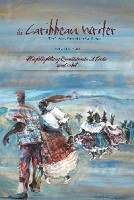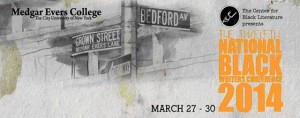The Caribbean Writer is now accepting submissions for Volume 28, to be published in 2014.

Deadline: 28 February 2014; submissions accepted via snail mail (address below) or email at [email protected]
Theme: Re-Visioning The Future Of The Caribbean Through Time, Place And Memories
Call For Papers:
The Caribbean Writer is seeking works that explore the defining moments of the Caribbean experience, the symbolism in the places that dot the Caribbean landscape, the journeys that inform our experiences, the memories that will not let us go. The editors hope to highlight and document Caribbean life in its broadest sense. They also invite works that provide a critical and historical overview, of times, places, and memories that reflect the wit, resilience and resourcefulness of Caribbean people as well as the implications of certain periods that have helped to define the notion of the contemporary Caribbean.
Major events in the history of the Caribbean and the experiences of people wherever they live the Caribbean experience are relevant in very profound ways. Memories of these events are meaningful not only because they provide fodder for introspection and change, but also because their implications are articulated on a number of levels. Memories of natural disasters, calamities, migrations, pivotal national decisions, national movements, societal trends, populations shifts, alienation issues, economic swings, internal struggles, and survival strategies ripple through the diaspora and have had such an impact on people that they possess an abiding ability to elicit passionate responses that can create new rifts or forge new alliances.
The passion that some memories arouse suggests that it would be useful to engage in a broad based collaborative conversation about time periods most poignantly remembered and the symbolism in the places associated with our celebrations, our victories, our epiphanies, our misfortunes and our failures. What better way to do this than in the poetry, prose, essays, and plays featured in The Caribbean Writer.
Submission Guidelines
The Caribbean Writer is an international literary refereed journal with a Caribbean focus. The Caribbean should be central to the work, or the work should reflect a Caribbean heritage, experience or perspective.
Submit poems, short stories, personal essays and one-act plays. Maximum length (for short stories and personal essays) is 3500 words or 10 pages. Only previously unpublished work will be accepted. (If self-published, give details.)
Follow this procedure for submissions: Put name, address, and title of submission on separate sheet. Title only on submission. All submissions should be on a separate sheet. Include brief biographical information and mention previous publications and Caribbean connection, if any. Type (double-spaced) all manuscripts.
All submissions are eligible for these prizes:
- The Daily News Prize for best poetry ($300)
- The Canute A. Brodhurst Prize for best short fiction ($400)
- The David Hough Literary Prize to a Caribbean author ($500)
- The Marguerite Cobb McKay Prize to a Virgin Island author ($200)
- The Charlotte & Isidor Paiewonsky Prize for first-time publication ($250)
Book Reviews – Persons interested in reviewing books should contact the editor indicating areas of expertise. Include sample reviews if possible.
Snail mail submissions to address below or email submissions to [email protected] as attached Word or RTF files.
OR
Mail to:
The Caribbean Writer
University of the Virgin Islands
RR 1, Box 10,000
Kinghill, St. Croix
U.S. Virgin Islands 00850-9781
Phone: 340-692-4152
Fax: 340-692-4026
Above adapted from the posted CFP at the The Caribbean Writer website.



